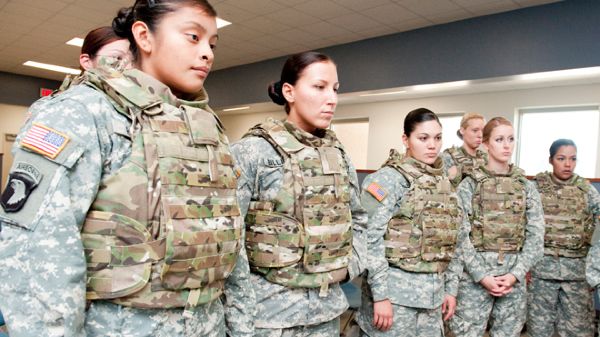Amendment Extends Abortion Coverage for Servicewomen

Photo: David Kamm, NSRDEC

- On December 4, the Senate voted unanimously to adopt their version of the National Defense Appropriations Act (NDAA) for 2013, which included an amendment to extend abortion coverage for servicewomen who become pregnant as a result of rape or incest. Currently, the only time an active duty servicewoman can have an abortion under the Department of Defense's healthcare coverage, called Tricare, is if her life is in danger. The House's version of the NDAA does not include this language, but the amendment is getting bipartisan support.
The amendment, sponsored by New Hampshire Senator Jeanne Shaheen, will replace the language in the bill that does not allow active duty service women to seek an abortion through their military care providers. US Army Maj. Gen. Gale Pollock said
Senator Shaheen expressed a similar sentiment, saying, “It’s a real injustice to the more than 200,000 women who are serving on active duty in our military.” She went on to say that the difference between Tricare's policy and other federal healthcare programs is not the result of an oversight, but of a deliberate change to the 1981 defense bill which removed the rape and incest provision.
Tricare's current policy stands out amongst other government-run health care systems including Medicaid and Medicare, federal employees covered under the Federal Employees Health Benefits Program, or women incarcerated at a federal penitentiary, which all allow abortions for pregnancies resulting from rape or incest under the Hyde Amendment.
The Shaheen amendment, as it is now known, is being met with some resistance from those on the far right, such as Rep. Joe Wilson (R - S.C.), who said he doesn't support any federal funding for abortions. Instead, Wilson said he'd rather spend the money on prosecuting those who commit the rape or incest.
According to Defense Secretary Leon Panetta, it is estimated that 19,000 sexual assaults occur in the military each year, but just 3,100 are reported. Often called "The Invisible War," female soldiers are conditioned to carry on and not think of themselves as victims. In addition, they are often fearful of career-ending reprisals if they report an incident.
Women make up about 15 percent of the 1.4 million active duty members currently serving, which equates to roughly 205,000 women in uniform. Unfortunately, sexual violence against them continues to be a problem, despite efforts to the prevent them following several high-profile cases, such as the 1991 Tailhook scandal and the more recent reports against Air Force drill instructors at Lackland Air Force Base in Texas.
Because the House's version of the NDAA doesn't include the revised abortion language, it will be the subject of negotiations in the coming days, as lawmakers work to hammer out the final bill. However, supporters of the bill are hopeful, as three of the four ranking members of the House and Senate Armed Services Committee, McCain (R-AZ), Levin (D-MI), and Smith (D-WA) support the bill.
The women who serve in uniform risk their lives to protect the rights of every woman. "They should have the same rights to affordable reproductive health services as the people they’re protecting." Says Shaheen. "This is about equality for these women."



